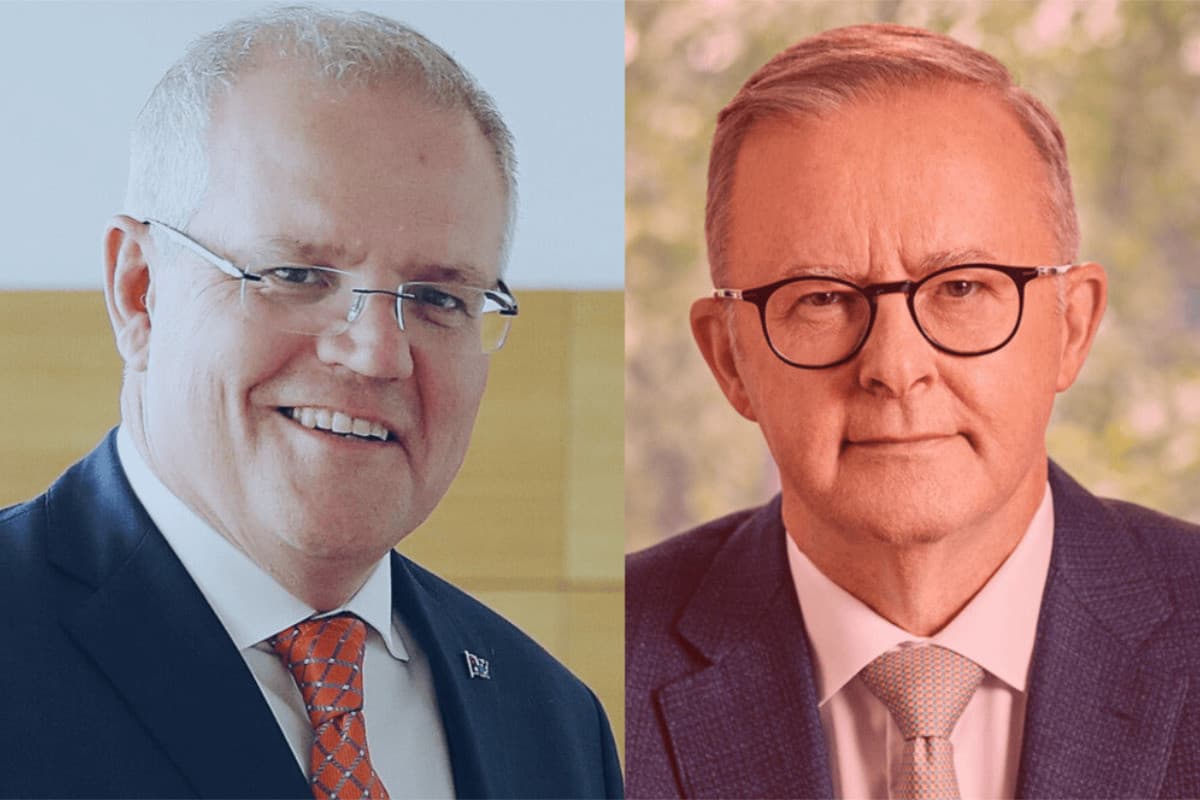The final leaders’ debate between Prime Minister Scott Morrison and Opposition Leader Anthony Albanese took place last evening, this time hosted by Channel 7.
Mr Albanese walked away with a comfortable win, earning the vote of 50 per cent of the 160 undecided voters present to Mr Morrison’s 34 per cent. 16 per cent of voters remained undecided.
Having previously discussed plans for the National Disability Insurance Scheme (NDIS), affordable housing, and even a federal anti-corruption commission in the first two debates, it was cost-of-living pressures and in particular, wage increases, that were now front and centre.
Among one of the first questions posed by moderator Mark Riley, Political Editor at 7NEWS, was the impact of a potential 5 per cent increase in minimum wages that is currently posed before the Fair Work Commission to match rising prices.
Mr Albanese said Labor would “absolutely welcome it” although they would not actively seek it.
“What we have said throughout this campaign is that we don’t want people to be left behind,” he stated. “If the increase is less than the inflation rate then what that means is they will be getting a real wage cut – and they deserve better than that.”
He compared raising wages $1 an hour to “just two coffees a day” and shot down claims that it would have economic repercussions.
“Real workers out there are doing it tough and those people on the minimum wage, it’s not like they’re making decisions based upon what holiday they will have. What they’re making decisions on is whether they will buy a steak or just have to stick to mince meat for their families,” he added.
Meanwhile, Prime Minister Morrison argued that such a move would be concerning for Australia’s small business owners.
“People won’t be worrying about what their wages are, they will be worrying about whether they have a job,” he said.
“I’d welcome pay rises obviously for all workers, not just those on the minimum wages, but we need to have an economy that’s strong into the future and if you have wages that rise at 5.1 per cent, which is exactly what Mr Albanese said yesterday, that means that can feed into inflation which pushes up interest rates and pushes up the cost of living even more.”
Earlier this week, Mr Morrison had labelled his political opponent a “loose unit” for supporting the wage increase.
“We all want to see wages go up, but the way you engage in economic policy is not in the loose way we saw from Anthony Albanese yesterday. Anthony Albanese is a loose unit on the economy,” he’d told reporters at a press conference in Newcastle.
At the final leaders debate, both candidates laid out their plans for economic recovery, with Mr Albanese turning to Labor’s childcare and renewable energy policies.
“Why do we do cheaper childcare? It’s not welfare, it’s economic reform. It will boost productivity, help business, help women’s retirement incomes,” he stated.
On his part, Mr Morrison noted that “female participation in the work force is at record levels” under the Coalition government and that the gender pay gap had fallen.
“The gender pay gap has fallen from 17.4 per cent under Labor to 13.8 per cent where it is now, and it even went down to 13.4 per cent,” Mr Morrison said. “It means women today because of the closing of the gender pay gap under our government are better off. There are 1.1 million more women in work than when we came to government.”
Both leaders eventually found common ground in ruling out the possibility of a mining tax or carbon tax when questioned by The West Australian’s Lanai Scarr.
Mr Morrison explained, “We never have, never will have a mining or a carbon tax. Under our government our taxes will always be lower, because right now if you’re earning $90,000 at home there today, you are paying $50 a week less in tax every single week because of the tax cuts we have already legislated and delivered.”
Mr Albanese, too, said that Labor would “certainly rule them out and have done so.”
READ MORE: Election 2022: What really matters to small business owners

